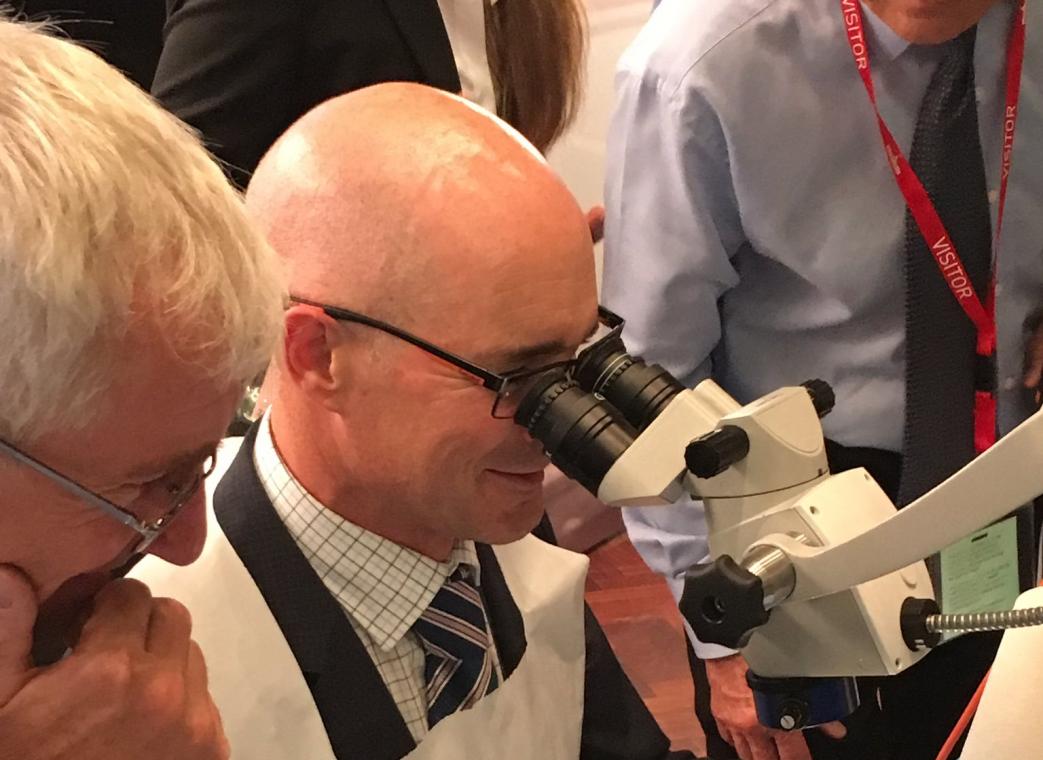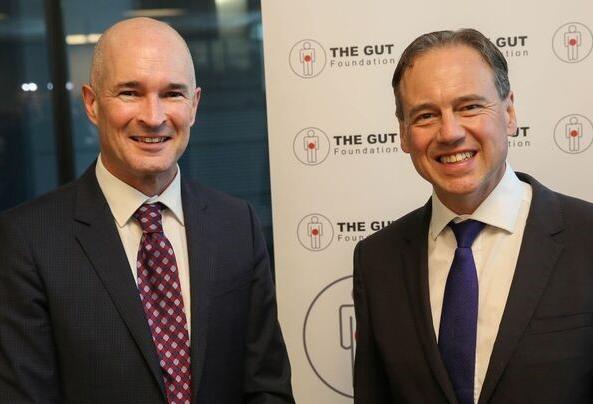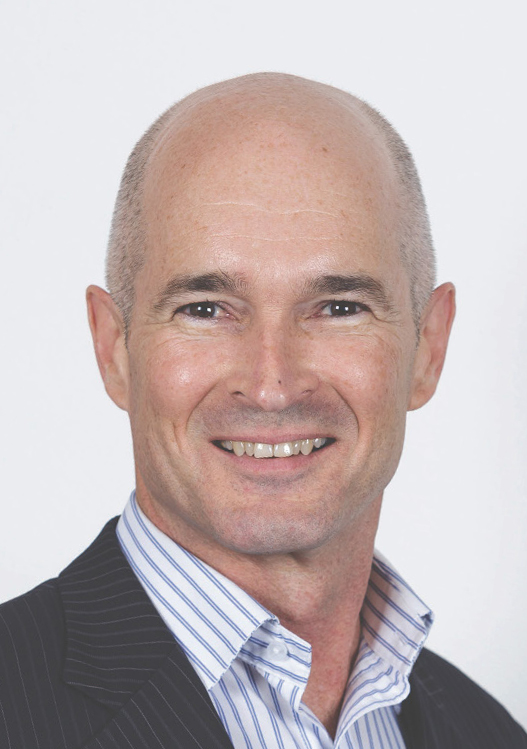MTAA Annual Report 2016/17
- 14 Dec 2017
- Annual Reports


 |
The MTAA CEO, Ian Burgess reviews the year at MTAA (an excerpt from the MTAA Annual Report 2016/17)
Since commencing as CEO in the second half of 2016-17, MTAA has, by necessity, allocated substantial time and resources to activities related to reform of the Prostheses List and the Agreement with Government.
However, the Association has also maintained broader advocacy and policy development, including regulatory reform; member services such as our professional development program, events and forums; our Women in MedTech initiative; and regular provision of information to members and analysis of healthcare and industry issues.
In September 2016, the Government released its Response to the Review of Medicines and Medical Devices Regulation. The reforms will be progressively rolled out by the Therapeutic Goods Administration (TGA) over the next three years.
MTAA is committed to ensuring the benefits of modern, innovative and reliable medical technology are available to patients. As a result, MTAA supported the recommendations of the Review that:
MTAA has been an active partner supporting the TGA initiatives to streamline assessment processes whilst ensuring the TGA activities are in line with global best practice. Our position has been to strike a balance between pre-market assessment and post-market monitoring, to avoid delaying patient access to new and improved medical devices that can result in significant benefits to a patient’s life, while ensuring devices are safe and effective.
The reforms will provide earlier access to the latest medical devices for patients by:
MTAA has continued to support the ongoing legislative changes required for the full implementation of the Review of Medicines and Medical Devices Regulation.
During 2016-17, MTAA continued leading the NSW Government’s MedTech Knowledge Hub. Following on from the Industry workforce and skills review that was conducted in the previous year, MTAA secured a grant from the NSW Government to engage Deloitte Access Economics to develop a Scoping Paper on the Economic contribution of the medical technology industry. This Scoping Paper will form the basis of a complete economic contribution analysis that is expected to be conducted in 2017-18.
Established to promote clinical trials and research in the medical technology industry, the Clinical Investigations Interest Group (CIIG) comprises ten industry professionals drawn from MTAA members and associate members. The CIIG occupies a unique position within MTAA, facilitating and advocating for clinical research, innovation and science in the Medical Technology Industry.
In May 2016, a successful Clinical Trials Forum was conducted, with a focus on the importance of clinical trials in Australia. In addition, MTAA also became a member of the Research and Development Taskforce which comprises experts in the field and Medicines Australia, and is focusing on activities to promote clinical trials in Australia, including setting up a national body for the coordination of clinical trials and promoting patient participation in clinical trials.
MTAA continues to be active in four national-level clinical registries: the Australian Breast Device Registry (ABDR), Australian Cardiac Outcomes Registry (ACOR), the Bariatric Surgery Registry (BSR) and the National Joint Replacement Registry (NJRR). With the raised importance of data and quality in healthcare, MTAA foresees a rise in registry activity moving forward.
During 2016-17, MTAA collaborated with AusBiotech, BioMelbourne Network, Medicines Australia and Research Australia to highlight to Government the importance of Research & Development (R&D) tax incentives for the MedTech industry. The proposals of the ‘Ferris, Finkel, Fraser’ Review to limit the R&D Tax Incentive if adopted would have a devastating impact. MTAA proactively engaged with the Government to highlight case studies to show the potential decline in this critical activity by members and the impact to the Australia economy. This advocacy was successful in delaying implementation of the proposals and will continue in 2017-18, in collaboration with the other key stakeholder organisations.
Similarly, MTAA adopted a successful collaborative advocacy approach with AusBiotech, BioMelbourne Network, Medicines Australia, Research Australia and the Australian Medical Research Institute to achieve restoration of key occupations for the MedTech, research and pharmaceutical sector to the skilled migration visa list. If this had not occurred, the sector would not have been able to access the skills required from overseas following changes by the Government to the 457 Visa requirements. In June 2017, the Federal Government announced that it would reinstate key MedTech occupations on the temporary and permanent skilled visas list, effective from 1 July 2017. It was pleasing that the Government addressed concerns that were widely shared across the industry, health and medical research sectors.
This year we welcomed nine new voting members and eleven Associate and Affiliate members, taking our membership total to 101. We implemented a new member management system and website to improve the usability of member resources, allowing members to customise the content they receive from MTAA. It allowed us to improve the registration process for training and events and negate the need for using third party systems for the conference. Booking fees and credit card surcharges have been removed.
Financial performance
Sound financial and operational management resulted in a profit of $106,932 in 2016-17, following losses of $386,305 in 2015-16 and $205,711 in 2014-15.
With an incoming CEO and the 2014-17 Strategic Plan drawing to a close, the MTAA Board commenced a strategic review process in March 2017. A quantitative member survey was conducted in May, with a total of 114 responses being received. Member company CEOs/MDs, authorised representatives, committee members and key member contacts across government affairs, regulatory, reimbursement, compliance and HR/training divisions of member companies were included in the survey.
In addition, qualitative research was conducted as a series of one-on-one in-depth interviews in April and May. This research provided valuable insights from a range of stakeholders, including Government and non-members.
Two facilitated Board workshops were held in March and in June to consider the results of the qualitative and quantitative research and an implementation workshop was conducted with MTAA staff. MTAA’s Strategy and Implementation Plan 2017–2020 was subsequently finalised and adopted by the Board in August 2017.
The Strategic Plan has been developed at an important time. Healthcare policy and funding is in flux in Australia and the Medical Technology Industry needs to be represented in policy debates that affect the future. The industry needs to continue to engage with the Government to move forward on a long list of issues, from regulation of combination devices to ongoing reform of the Prostheses List.
MTAA needs to grow, to be increasingly financially strong and to achieve the strategic goals it has set. The plan identifies that the best path to growth is in collaboration with a broad-based alliance that includes researchers, manufacturers, distributors, clinicians, providers, funders and consumers. Collaboration is at the heart of the plan. It widens engagement, expands a base for representation and advocacy, and brings benefits to members.
I look forward to implementing the plan, to engage and re-engage current members, past members and other stakeholders to improve representation and support for relevant projects and advocacy, and to work towards better meeting the needs of MTAA members.
I would like to recognise the extraordinary efforts of the entire MTAA staff during what has been a challenging period. Our dedicated and passionate staff have enabled the Association to “punch above its weight” in terms of the quantity and quality of output from our small team.